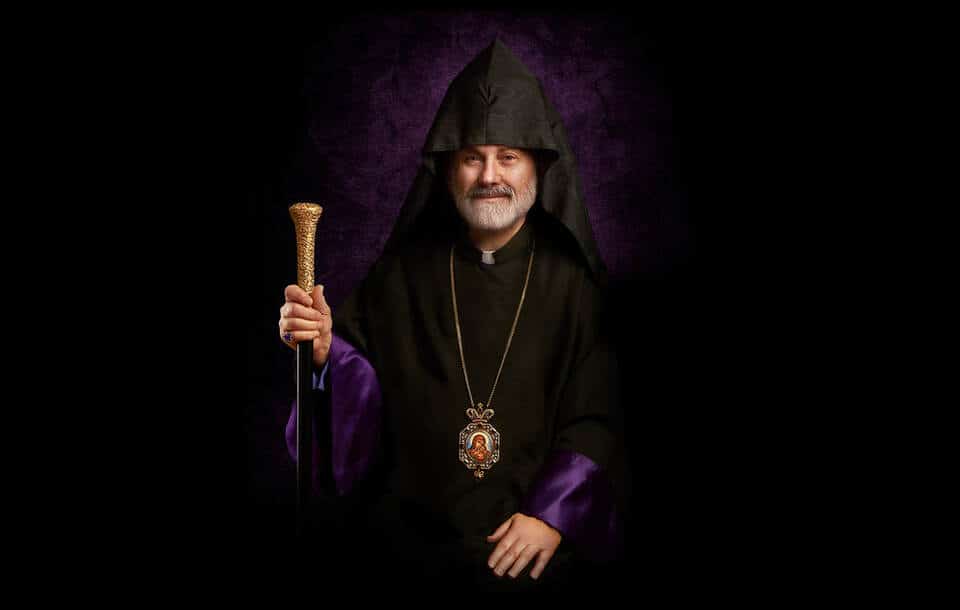The Prelate’s Sermon, January 31
Today, on the third Sunday following the Nativity and Theophany of our Lord Jesus Christ, our Gospel reading is from St. John 6:22-38. The Evangelist tells us that the crowd, diligently having searched for Jesus, finally finds Him in Capernaum. They ask Him how He had managed to get there so quickly? Jesus, knowing that they were looking for Him because of the miracle of the feeding of the five thousand, turns their attention to “the food that endures for eternal life which the Son of Man will give.” They ask Him what they must do to perform the works of God? Jesus answers: “This is the work of God, that you believe in Him whom He has sent.” The crowd asks for signs to believe in Him, and remind Him that their ancestors ate the manna in the wilderness. Jesus gently directs them by saying: “It was not Moses who gave you the bread from heaven, but his Father.” When Jesus clearly refers to the heavenly bread which gives life to the world, they say, “Sir, give us this bread always.” Catching the momentum, Jesus solemnly announces and says: “I am the bread of life. Whoever comes to me will never be hungry, and whoever believes in me will never be thirsty.” And He concludes His statement by saying, “I have come down from heaven, not to do my own will, but the will of him who sent me.”
This passage is one of the unique narratives in the four Gospels, where Jesus takes time for conversation with the people about His identity. It somehow reminds us of the earlier conversation with the Samaritan woman at Jacob’s Well (Jn 4:1-26).
This reading provides us with very rich materials to discuss that go beyond the limits of a sermon. Actually, the material covers an entire seminar! Since our Church Fathers have designated the reading for today’s spiritual bread, let us contemplate the following four points.
- Jesus never looks down on the people as ignorant. As a matter of fact, He shares with them the essentials of Christology (that is, the definition of Who Christ is) in a very simple way. Very patiently, He offers His precious time to orient their mindset in order to see the relationship between the Old and the New. As a true pedagogue, He appreciates their curiosity and inquisitiveness to get the right answers prevailing since the Creation. In Deuteronomy very clearly we read: “Ask your father and he will tell you, your elders, and they will explain to you” (Deut. 32:7). Here, we see the wisdom of all fathers and elders, which is incorporated in this Good Rabbi, expands the horizon of their understanding to ascend to the source of all Wisdom and to meet the Heavenly Father.
- Upon the request to know what they must do to perform the works of God, Jesus provides them with a pragmatic approach – “Believe in Him whom He has sent.” God’s pouring love indeed is fascinating. There is no burden of complicated laws and obligations to do. Just believe in Him whom He has sent. Using today’s scientific language, we are wasting trillions of dollars, unlimited manpower and energy to get signals from other planets to determine whether there are living beings there. My dear fellow brothers and sisters, God has sent the most solid and tangible sign of His presence in the person of His beloved Son. If we are still searching for further signs, then we are only fooling ourselves by galvanizing our hearts with unbelief.
- The new Law Giver, as described by St. Matthew, on the Mount of the Beatitudes, taught us in the Lord’s Prayer “Give us this day our daily bread” (Mt 6:11). There is no doubt that our heavenly Father, who takes care of the birds of the sky and the lilies of the field (Mt 6:26-28) surely provides the daily necessities of humans as well. Our Church Fathers have interpreted the meaning of the phrase “daily bread” as meaning The Bread, par excellence, which is Jesus Christ. Literally, when we are honored to be in His presence, our entire existence overflows with an inexplicable fullness. We should be so grateful not only with His presence, but we are even privileged to partake of His Holy Body and Precious Blood in the form of the Holy Communion. This is a topic to be discussed in the future by itself.
- In our understanding of theology, within the Triune God, only one Will operates. One of our Nativity hymns describes in the following words: “He whom neither the heavens nor the earth can contain is wrapped up in swaddling clothes; without ever being separated from the Father, He is laying in a manger in the cave”. From the human perspective of geographical distance, physical separation may be interpreted as the weakening of oneness, yet for the Divinity, even the blinking of an eye cannot create that kind of split. Jesus made it very clear by saying: “If a house is divided against itself, that house cannot stand” (Mk 3:25). Thanks be to Almighty Lord whose providential, undivided Will holds this Creation firmly in place, until the new heaven and the new earth appear (Is 65:17), where His Will shall prevail.
With this precious food for our soul let us always thankfully glorify the Father, revealed in the Son, and working in the Holy Spirit. Amen.

